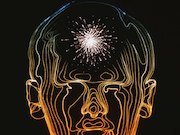Most tissue samples of arteriovenous malformations of the brain had somatic activating KRAS mutations
FRIDAY, Jan. 5, 2018 (HealthDay News) — Many patients with arteriovenous malformations of the brain have somatic activating KRAS mutations, according to a study published online Jan. 3 in the New England Journal of Medicine.
Sergey I. Nikolaev, Ph.D., from the University of Geneva Medical School, and colleagues examined tissue and blood samples from patients with arteriovenous malformations of the brain to detect somatic mutations. Exome DNA sequencing of tissue samples of arteriovenous malformations of the brain was performed for 26 patients in the main study group and for paired blood samples from 17 of these patients. The findings were confirmed using droplet digital polymerase-chain-reaction analysis of tissue samples from 39 patients in the main study group (21 with matching blood samples) and from 33 patients in an independent validation group.
The researchers identified somatic activating KRAS mutations in tissue samples from 45 of the 72 patients; mutations were not identified in any of the 21 paired blood samples. KRAS mutations were detected in endothelial cell-enriched cultures derived from arteriovenous malformations of the brain; expression of mutant KRAS in endothelial cells in vitro induced increased extracellular signal-regulated kinase (ERK) activity, increased expression of genes related to angiogenesis and Notch signaling, and enhanced migratory behavior. Inhibition of mitogen-activated protein kinase-ERK signaling resulted in reversal of these processes.
“We identified activating KRAS mutations in the majority of tissue samples of arteriovenous malformations of the brain that we analyzed,” the authors write.
One author disclosed financial ties to the pharmaceutical industry.
Copyright © 2018 HealthDay. All rights reserved.








